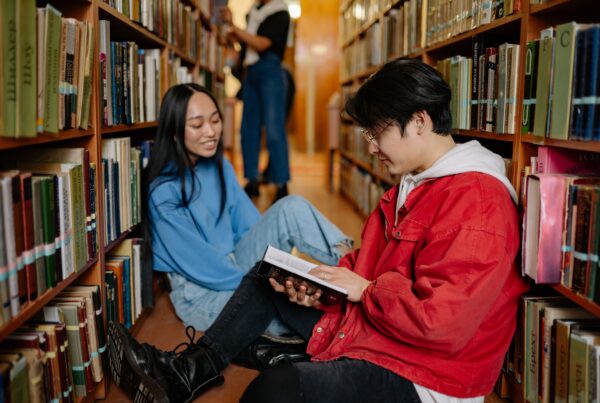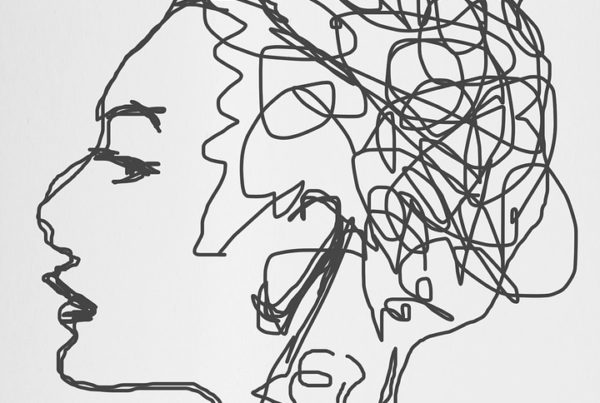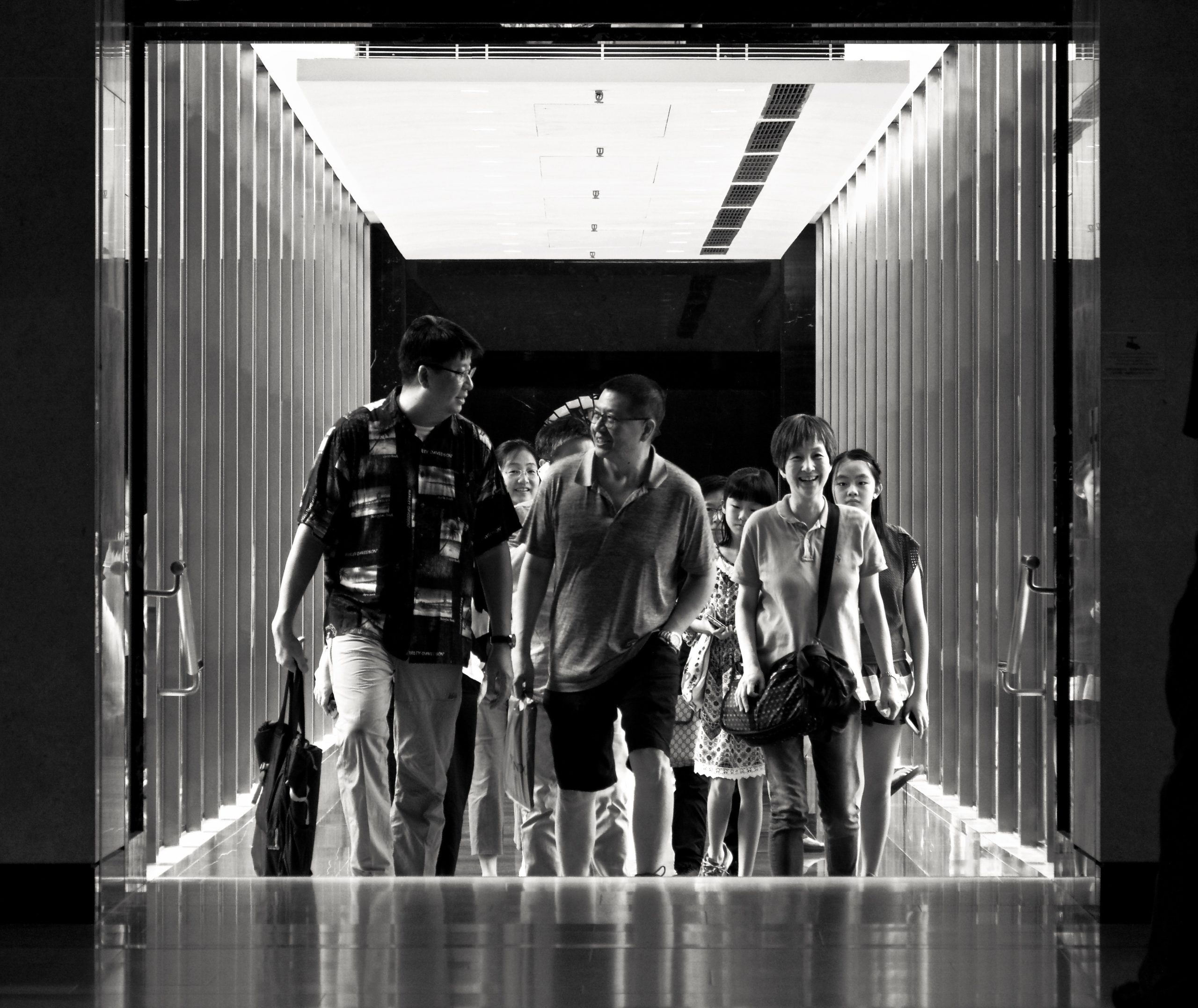
When confronted with the word ‘rainbow’, my associate network immediately brings the LGBTQ+ community to mind. And because I know some wonderful people whose story should be heard, the Corridor for this Spiegeloog issue will focus on Anna and Charlie.
When confronted with the word ‘rainbow’, my associate network immediately brings the LGBTQ+ community to mind. And because I know some wonderful people whose story should be heard, the Corridor for this Spiegeloog issue will focus on Anna and Charlie.
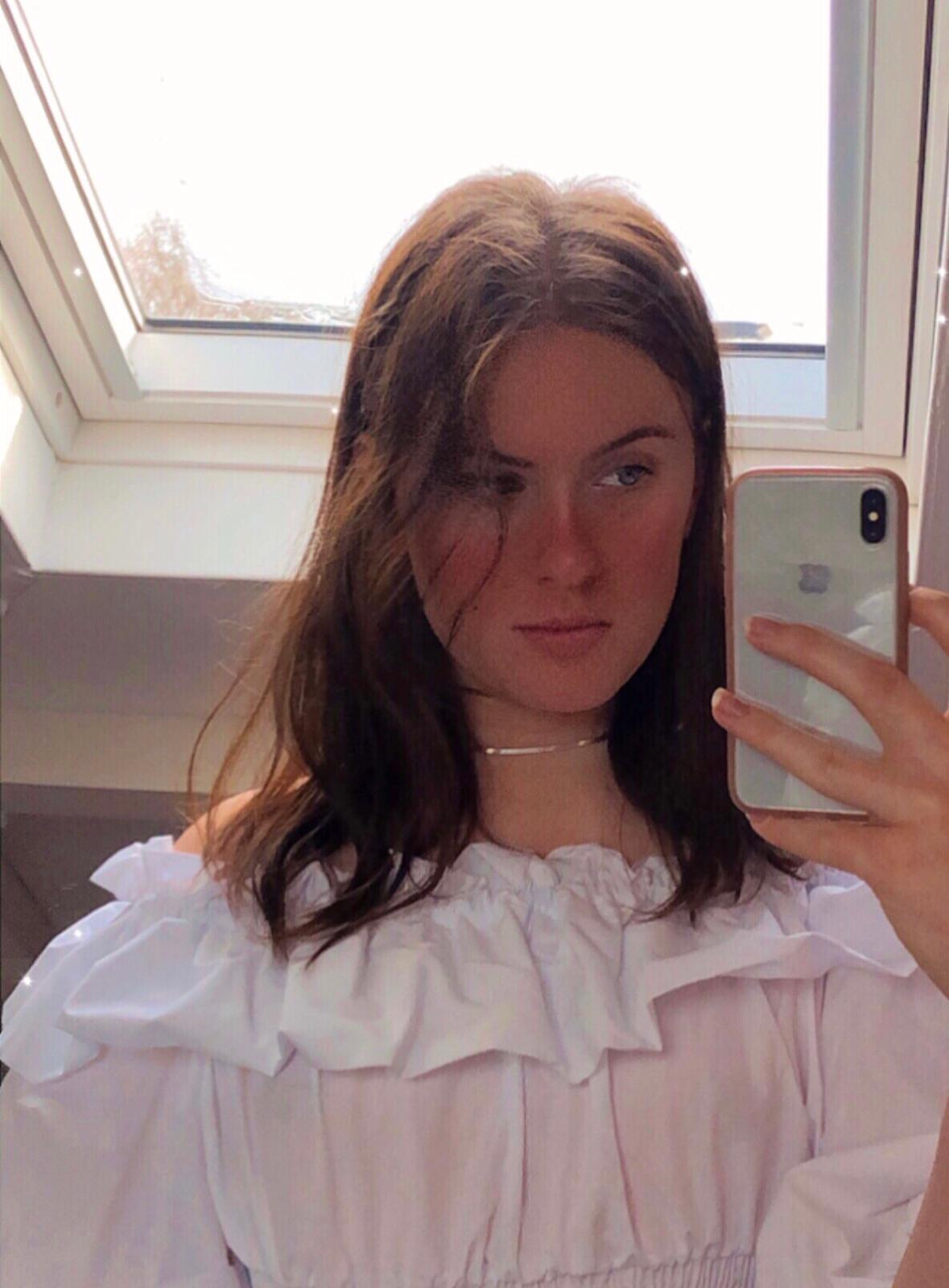
Anna (21, second-year bachelor’s student)
Spiegeloog: Hi, Anna, thank you so much for taking the time. First question – which I think should be the standard nowadays – what are your pronouns?
Anna: My pronouns are she/her but if I am honest, I don’t really feel comfortable with that question. I am aware that as a trans woman, I might not fit in the typical mould, but I do feel like the most average woman there is. And as questions about pronouns are still unusual, they tend to make me feel less normal and sometimes dysphoric. My personal goal is for people to tell that I am female from my appearance. This does not discount the experience of those who would like to be asked but I guess this is more a personal preference. Asking about pronouns might be meant well but rather highlights my differences.
Spiegeloog: That is a good point, it is important to point out that you are sharing your personal experiences and do not represent the entire LGBTQ+ community. Speaking of personal experiences, how was the reaction of your family and friends when you explained to them that you were wrongfully assigned male at birth? And how would you generally like for people to react?
Anna: My friends and sister were and are incredibly supportive. For my parents, they were initially surprised as I had not shown any of the stereotypical signs depicted in most TV shows. Often, characters on TV know from a young age that they are transgender and express their wishes to transition. I, however, rather played out those scenarios in my head. But my parents are really supportive now! And in terms of what I would have wished for, the best reactions are when people do not make a big deal. I changed my name on Instagram and suddenly loads of people used it in their comments under my posts. I am aware that this was meant well but it made me feel more different as people normally don’t use someone’s name when commenting. I just wish there was a way to change your name without it being a thing.
Spiegeloog: And how was your experience at the UvA?
Anna: As my transition started last June during the pandemic, I have not been in any on-campus classes. So, I cannot really talk about university experiences but I did not encounter any negativity in my online classes and felt greatly supported by the study advisors. To maintain my positive experience and ensure that others from the LGBTQ+ community do so, too, I am planning to create a course on diversity for the education bachelor’s. I would like upcoming teachers to know how to treat people who are not cisgender and heterosexual from different ethnic and religious backgrounds. I won’t be doing this on my own but would like to share our stories, the stories from people of the LGBTQ+ community.
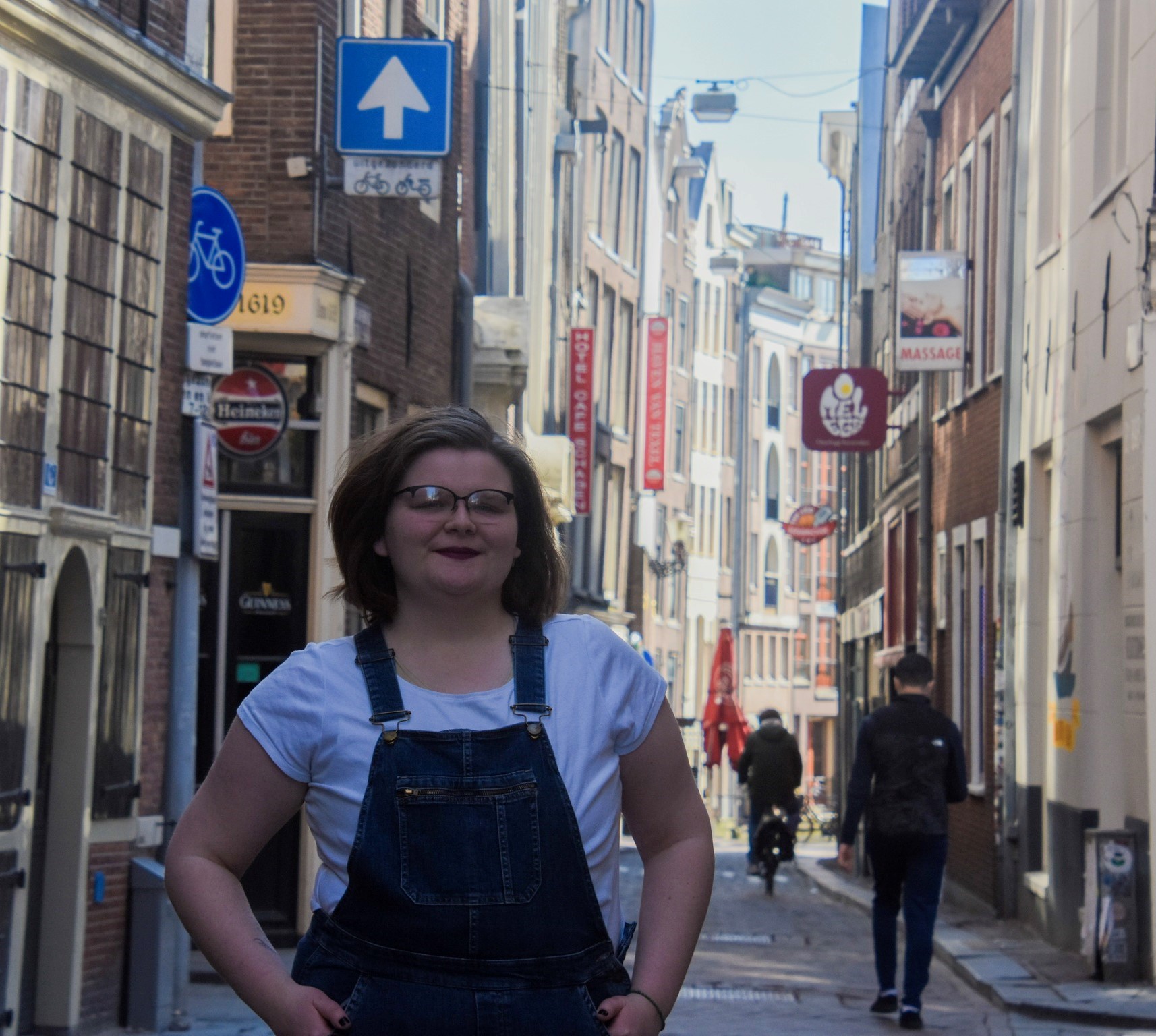
Charlie (22, third-year bachelor’s student)
Spiegeloog: Thanks for taking the time and – if you feel comfortable in doing so – could you share with us what your pronouns are?
Charlie: Yes, at the moment, my pronouns are they/them and I am glad this question has become more frequent in university. For those who would like to prevent being potentially misgendered, I would recommend putting your pronouns next to your name on e.g., zoom calls. And for tutorial teachers, besides asking about our age, specialisation, and location of birth at the beginning of a new course, adding a question about one’s pronouns could be nice. In general, I think substituting ‘he’ or ‘he/she’ with ‘they’ would be great, not only to include non-binary but also female students. Oftentimes, professors say sentences like ‘he had issues with sleeping … or she’ while using ‘they’ would include everyone.
Spiegeloog: Some of our readers might be currently trying to figure out whether they are non-binary. Could you share some tips for those but also parents and friends who might want to approach these topics?
Charlie: I have been really open about my sexuality for quite a while so that my family and friends were already fairly accustomed with the LGBTQ+ community when I came out as non-binary. They read up on certain topics and reacted in an honest and kind manner which made me feel understood and accepted. I am aware that not everybody has such a support network which makes it even more difficult to ask yourself those questions. And I have found especially being non-binary can be linked to a lot of doubt founded in exploration as well as society’s expectations. But if you feel like that right now, I can only say – trust the process. You will receive support from amazing people even if you don’t know them yet. Tips for family and friends are to be honest and open and refrain from asking questions you could lookup. Also, ask yourself whether you would ask a cis and/or hetero person this question.
Spiegeloog: What would you advise those who might not be in an environment where they can figure themselves out freely?
Charlie: I would advise them to consider watching some of the videos below. These channels show the experiences of people from the LGBTQIAP community. Besides feeling represented and affirmed about your worries and struggles, they also give you the opportunity to look into a potential future, in which you are accepted, have come out, and found an amazing support network. I understand this might not be possible for all people though. There are books, movies, online forums, and alternative options if you have the time and space for a bit of research.
Jammidodger: https://www.youtube.com/user/MrPinocchio17
Shaaba:https://www.youtube.com/channel/UCjZ97eKgNwC4j-z_6LDjfIg
Aaron Ansuini:https://www.youtube.com/channel/UChKlTFo745L9crVvLG19aCA
My Genderation: https://www.youtube.com/channel/UCsDRRuhpz3oCi5PABiiY5kA
Jessica Kellgren-Fozard: https://www.youtube.com/channel/UCDdi0yUyGW1PKzYXaIACnuA

Anna (21, second-year bachelor’s student)
Spiegeloog: Hi, Anna, thank you so much for taking the time. First question – which I think should be the standard nowadays – what are your pronouns?
Anna: My pronouns are she/her but if I am honest, I don’t really feel comfortable with that question. I am aware that as a trans woman, I might not fit in the typical mould, but I do feel like the most average woman there is. And as questions about pronouns are still unusual, they tend to make me feel less normal and sometimes dysphoric. My personal goal is for people to tell that I am female from my appearance. This does not discount the experience of those who would like to be asked but I guess this is more a personal preference. Asking about pronouns might be meant well but rather highlights my differences.
Spiegeloog: That is a good point, it is important to point out that you are sharing your personal experiences and do not represent the entire LGBTQ+ community. Speaking of personal experiences, how was the reaction of your family and friends when you explained to them that you were wrongfully assigned male at birth? And how would you generally like for people to react?
Anna: My friends and sister were and are incredibly supportive. For my parents, they were initially surprised as I had not shown any of the stereotypical signs depicted in most TV shows. Often, characters on TV know from a young age that they are transgender and express their wishes to transition. I, however, rather played out those scenarios in my head. But my parents are really supportive now! And in terms of what I would have wished for, the best reactions are when people do not make a big deal. I changed my name on Instagram and suddenly loads of people used it in their comments under my posts. I am aware that this was meant well but it made me feel more different as people normally don’t use someone’s name when commenting. I just wish there was a way to change your name without it being a thing.
Spiegeloog: And how was your experience at the UvA?
Anna: As my transition started last June during the pandemic, I have not been in any on-campus classes. So, I cannot really talk about university experiences but I did not encounter any negativity in my online classes and felt greatly supported by the study advisors. To maintain my positive experience and ensure that others from the LGBTQ+ community do so, too, I am planning to create a course on diversity for the education bachelor’s. I would like upcoming teachers to know how to treat people who are not cisgender and heterosexual from different ethnic and religious backgrounds. I won’t be doing this on my own but would like to share our stories, the stories from people of the LGBTQ+ community.

Charlie (22, third-year bachelor’s student)
Spiegeloog: Thanks for taking the time and – if you feel comfortable in doing so – could you share with us what your pronouns are?
Charlie: Yes, at the moment, my pronouns are they/them and I am glad this question has become more frequent in university. For those who would like to prevent being potentially misgendered, I would recommend putting your pronouns next to your name on e.g., zoom calls. And for tutorial teachers, besides asking about our age, specialisation, and location of birth at the beginning of a new course, adding a question about one’s pronouns could be nice. In general, I think substituting ‘he’ or ‘he/she’ with ‘they’ would be great, not only to include non-binary but also female students. Oftentimes, professors say sentences like ‘he had issues with sleeping … or she’ while using ‘they’ would include everyone.
Spiegeloog: Some of our readers might be currently trying to figure out whether they are non-binary. Could you share some tips for those but also parents and friends who might want to approach these topics?
Charlie: I have been really open about my sexuality for quite a while so that my family and friends were already fairly accustomed with the LGBTQ+ community when I came out as non-binary. They read up on certain topics and reacted in an honest and kind manner which made me feel understood and accepted. I am aware that not everybody has such a support network which makes it even more difficult to ask yourself those questions. And I have found especially being non-binary can be linked to a lot of doubt founded in exploration as well as society’s expectations. But if you feel like that right now, I can only say – trust the process. You will receive support from amazing people even if you don’t know them yet. Tips for family and friends are to be honest and open and refrain from asking questions you could lookup. Also, ask yourself whether you would ask a cis and/or hetero person this question.
Spiegeloog: What would you advise those who might not be in an environment where they can figure themselves out freely?
Charlie: I would advise them to consider watching some of the videos below. These channels show the experiences of people from the LGBTQIAP community. Besides feeling represented and affirmed about your worries and struggles, they also give you the opportunity to look into a potential future, in which you are accepted, have come out, and found an amazing support network. I understand this might not be possible for all people though. There are books, movies, online forums, and alternative options if you have the time and space for a bit of research.
Jammidodger: https://www.youtube.com/user/MrPinocchio17
Shaaba:https://www.youtube.com/channel/UCjZ97eKgNwC4j-z_6LDjfIg
Aaron Ansuini:https://www.youtube.com/channel/UChKlTFo745L9crVvLG19aCA
My Genderation: https://www.youtube.com/channel/UCsDRRuhpz3oCi5PABiiY5kA
Jessica Kellgren-Fozard: https://www.youtube.com/channel/UCDdi0yUyGW1PKzYXaIACnuA


